
We reviewed over 200 businesses worldwide*, and have identified over 165 businesses operating in the care economy across Latin America, Sub-Saharan Africa and Asia who met the following 4 criteria:
1. Geography focus: operating in project target countries.
2. Care economy impact: business activities recognize, reduce, reward or redistribute care work.
3. Proof of concept: care economy activities at least at the launch stage (none of the businesses are at concept stage).
4. Market-based intervention: already or planning to be financially profitable or to generate income in the medium term.
Out of the mapping we selected 60 businesses to conduct a full profile and showcase potential investment opportunities. These profiles have been created from information and data provided by the business itself. Use the filter on the left to access the businesses profiled.
* Disclaimer: The data presented in the business mapping and profiles is based on information provided by the businesses and has not been independently verified
1. Geography focus: operating in project target countries.
2. Care economy impact: business activities recognize, reduce, reward or redistribute care work.
3. Proof of concept: care economy activities at least at the launch stage (none of the businesses are at concept stage).
4. Market-based intervention: already or planning to be financially profitable or to generate income in the medium term.
Out of the mapping we selected 60 businesses to conduct a full profile and showcase potential investment opportunities. These profiles have been created from information and data provided by the business itself. Use the filter on the left to access the businesses profiled.
* Disclaimer: The data presented in the business mapping and profiles is based on information provided by the businesses and has not been independently verified
Filter Your Results
Ayasan
Website: ayasan.vn/aboutus
Headquarters: Thailand
Country of Operations: Indonesia, Vietnam, Thailand, Laos
Women owned / led: At least 30% women in senior leadership positions, At least 30% of women in board of directors
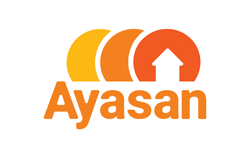
About the organization: Ayasan is a for-profit company that provides personnel for housework and care work to its customers. It is operational in Vietnam, Indonesia, Laos and Thailand and provides personnel for a range of services, such as nannies, tutors, chauffeurs, and caregivers to the elderly. It also provides upskilling and certification to care-givers and provides them opportunities for continued employment.
Stage of Growth: Mass roll-out/Expansion
Types of Services: Domestic services
Activities in the care economy: Provision of technology & services that train/upskill domestic & care workers
Pathway to impact: Reduce, Reward
BURN Manufacturing
Website: burnstoves.com
Headquarters: Kenya
Country of Operations: Ethiopia, Ghana, Kenya, Nigeria, Philippines, Senegal, South Africa, Tanzania, Uganda, Vietnam, Zambia, Somaliland, Somalia, Tanzania, DRC, South Sudan, Puntland, Sierra Leone, Burkina Faso, Cambodia, Rwanda, Burundi, Australia, Zimbabwe, Mozambique, Canada, Germany, Ivory Coast, India, Thailand, Malawi
Women owned / led: At least 30% of women in board of directors
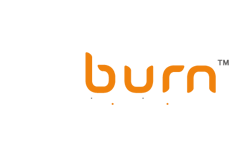
About the organization: BURN is a for-profit company that manufactures affordable clean cookstoves for households in sub-Saharan Africa. To date, BURN has sold over 1.2 million stoves. BURN’s cookstoves save money, fuel and time for its customers and help reduce harmful indoor smoke emissions which can cause significant health problems. The company’s products are instrumental in reducing the burden of collecting firewood, which typically falls on women, and potentially exposes them to risk of physical and sexual violence.
Stage of Growth: Mass roll-out/Expansion
Types of Services: Labour saving solutions
Activities in the care economy: Provision of affordable time and labour saving technology and products
Pathway to impact: Reduce
Happy Helpers
Website: happyhelpers.ph
Headquarters: Philippines
Country of Operations: Philippines
Women owned / led: Founded by at least one woman, At least 51% owned by women, At least 30% women in senior leadership positions, At least 30% of women in board of directors
About the organization: Happy Helpers is a for-profit, women-led enteprise that provides domestic cleaning services to households and companies in Manila, Philippinnes. These services are provided through a team of locally trained and hired domestic workers. The service provided by Happy Helpers reduces the time spent by women on cleaning at home. It also increase recognition of work done by domestic workers. Happy Helpers has led to increase in income, skills and efficiency among domestic workers.
Stage of Growth: Mass roll-out/Expansion
Types of Services: Domestic services
Activities in the care economy: Provision of affordable services that provide care & domestic work
Pathway to impact: Reduce, Reward
Hasu
Website: hasuapp.vn/tam-nhin-su-menh-hasu
Headquarters: Vietnam
Country of Operations: Vietnam
Women owned / led: Founded by at least one woman, At least 51% owned by women, At least 30% women in senior leadership positions, At least 30% of women in board of directors
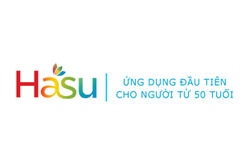
About the organization: Hasu is a for-profit start-up in Vietnam that caters to the physical, mental and emotional needs of elderly. Through the app, Hasu aims to aggregate the various services that are required by elderly people. It services include nursing, nutrition, games and exercises. The business contributes to the redistribution and reduction of care work within households, as well as greater digital awareness and technology use amongst the elderly.
Stage of Growth: Small scale roll-out/Early stage
Types of Services: Elderly-care (Ages 60 and above)
Activities in the care economy: Provision of affordable services that provide care & domestic work
Pathway to impact: Reduce, Redistribute
HIPOCAMPUS
Website: www.hipocampus.mx
Headquarters: Mexico
Country of Operations: Mexico
Women owned / led: Founded by at least one woman, At least 30% women in senior leadership positions, At least 30% of women in board of directors
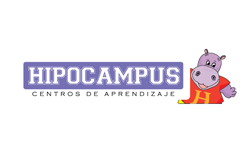
About the organization: Hipocampus is a social enterprise that provides high-quality and affordable early childhood care and education for working families in Mexico. Hipocampus partners with employers to provide on-site childcare services fully aligned with parents´ needs. With a B2B business and distribution model, Hipocampus operates under a community-centered approach (ie. providing opportunities to educators-mostly women- from the same communities where the centers operate.
Stage of Growth: Mass roll-out/Expansion
Types of Services: Child-care (Ages 1 to 5), Child-care (Ages 6 and above)
Activities in the care economy: Provision of technology & services that train/upskill domestic & care workers (e.g. technology that links employers to domestic/care workers), Provision of affordable services that provide care & domestic work (e.g. affordable daycare services in rural areas)
Pathway to impact: Recognize, Reduce, Redistribute
I.A.B. – Institut Academic of Babies
Website: www.iab-afrique.com
Headquarters: Senegal
Country of Operations: Senegal
Women owned / led: Founded by at least one woman, At least 51% owned by women, At least 30% women in senior leadership positions, At least 30% of women in board of directors
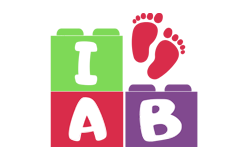
About the organization: I.A.B is a social business that trains care workers in early childhood care. In Senegal, day care centers are not regulated and there is no school that is specifically focused on training related early childhood. As a result, children are less likely to go to nurseries. Through it’s training programs I.A.B has increased the skills of childcare workers, resulting in higher incomes for these workers. I.A.B’s impact includes improved health conditions among toddlers, decent work opportunties for care workers, and increased productivity of parents who are assured that the care and development of their children is in expert hands.
Stage of Growth: Mass roll-out/Expansion
Types of Services: Infant-care (children younger than 1-year), Child-care (Ages 1 to 5), Domestic services
Activities in the care economy: Provision of technology & services that train/upskill domestic & care workers
Pathway to impact: Recognize, Reward
LivelyHoods Kenya
Website: www.livelyhoods.org
Headquarters: Kenya
Country of Operations: Kenya
Women owned / led: Founded by at least one woman, At least 30% women in senior leadership positions, At least 30% of women in board of directors
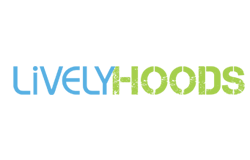
About the organization: Livelyhoods Kenya is a non-profit social enterprise that provides last-mile distribution of essential items in slum communities of Kenya. Livelyhoods Kenya trains women who work as sales agents in the community. Through its intervention, Livelyhoods has enabled women to purchase products that have reduced their care work, including cookstove and solar lights. Adoption of these products has reduced household expenditures and drudgery for women.
Stage of Growth: Mass roll-out/Expansion
Types of Services: Domestic services, Labour saving solutions
Activities in the care economy: Provision of affordable services that provide care & domestic work
Pathway to impact: Reduce, Reward
Nazava Water Filters
Website: www.nazava.com
Headquarters: Indonesia
Country of Operations: Ethiopia, Indonesia, Kenya
Women owned / led: Founded by at least one woman, At least 30% women in senior leadership positions, At least 30% of women in board of directors
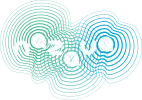
About the organization: Nazava is a for-profit enterprise that produces affordable gravity based ceramic household water filters, replacing the need to boil water on wood or LPG. It reduces care work as women save 139 hours per year on boiling and collecting fuel using the water filters. Nazava purified water is 3 times cheaper than boiling and 9 times cheaper than buying water from refill-kiosks.
Stage of Growth: Mass roll-out/Expansion
Types of Services: Labour saving solutions
Activities in the care economy: Provision of affordable time and labour saving technology and products
Pathway to impact: Reduce
Xalco Ltd – Trading as “UJUZI FURSA AFRICA” “HOMECARE360” “COMFORTCARE360”
Website: www.homecare-360.com
Headquarters: Kenya
Country of Operations: Kenya, South Sudan
Women owned / led: Founded by at least one woman, At least 51% owned by women, At least 30% women in senior leadership positions, At least 30% of women in board of directors
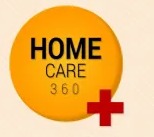
About the organization: Xalco Ltd is a social enterprise that trains and certifies caregivers in Kenya and South Sudan. Its services include provision home health care services such as asssitance to daily living, companionship to elders, post operation/surgery patients, mentally ill elders, among others. The enterprise leverages an online platform to connect caregivers to customers. Its services not only reduce the burden of care work but also provide trainings to caregivers.
Stage of Growth: Mass roll-out/Expansion
Types of Services: Elderly-care (Ages 60 and above), Care for persons with special needs (disabled / differently abled persons), Care for people with illnesses, Labour saving solutions
Activities in the care economy: Provision of affordable services that provide care & domestic work
Pathway to impact: Recognize, Reward, Redistribute
